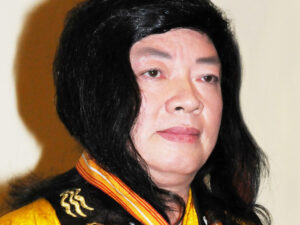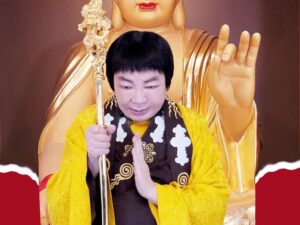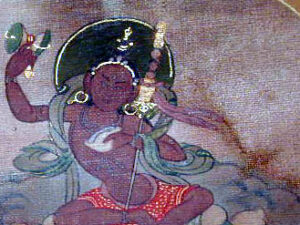SB43-Avatamsaka Sutra (The Sutra of the Garland of Flowers)
- Description
- Curriculum
- Reviews

The Avatamsaka Sutra is among the largest and greatest of the scriptures of Mahayana Buddhism. It consists of 12 volumes in Chinese, and 1656 pages in the English. As with most Mahayana scriptures, it treats Buddha not as merely a man of ancient India, but as a cosmic principle. Differing from the austere and non-theist Theravada scriptures, it is full of gods and goddesses, heavens, jeweled trees and heavenly beings. The Avatamsaka Sutra became very influential in Chinese Buddhism and was responsible for the creation of the Hua-Yen school. The Hua-Yen school was founded by Tu-shun (557-640) and Fa-tsang (Hsien-shou 643-712) and reached its peak during the Tang Dynasty in China.
In the Mahayana tradition this sutra is considered the first sermon given by the Buddha after His enlightenment and is centered on the philosophy of interpenetration and mutual containment of all phenomena, often depicted in the image of “Indra’s Net.” It was taught to Bodhisattvas and celestial beings. Its metaphysics were completely assimilated by the Chan School. There are still followers of this tradition in the West within certain Chinese communities. H.H. Dorje Chang Buddha III told us in Learning from Buddha that “If you are a master with disciples, you must at least study in depth some sutras and commentaries as a foundation, such as . . . the Avatamsaka Sutra, . . . and others. Doing so will reduce the possibility of leading others astray in the process of teaching.”
The curriculum will include assignments, quizzes, supplemental materials, and group discussions. This interactive course is not available for those enrolled in the free membership program for AUDITING STUDENTS. It will only be part of the paid membership program.
Click on the “Curriculum” tab and you will find that this course is under development. If you have not registered for a membership and wish to join for other courses, please click on “Membership” on the top menu bar to select your membership and enroll in those courses. You are also required to complete the application form provided in course “G02-Spiritual Autobiography”” prior to being admitted to either the BUDDHIST STUDIES or the XIUXING SEMINARY PROGRAMS.
Click for detailed Users Guides under the “STUDENT MANUAL” in the website’s top menu bar for more information. Prior to viewing this course curriculum when it is available, you are required to listen to and complete “D35-128 Evil and Erroneous VIews.”
We will use Thomas Cleary’s translation for this course.
2 credits.




